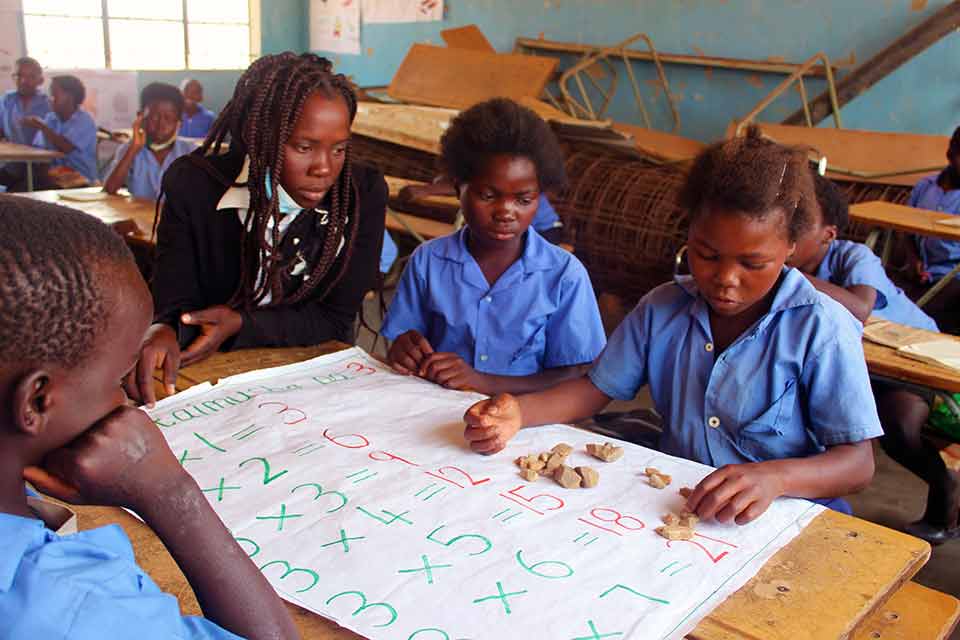
Development Analyst Charity Musamba says that Zambia’s education sector has been messed up due to the hazardous educational reforms that have been taking place post-independence and has called for more investment in critical thinking in the country’s education system.
In an exclusive interview with the Zambian Business Times –ZBT, Musamba said the education curriculum has changed over time, but that it was messed up after 1990 when the country began undertaking education reforms. She said it was started by promoting basic education which meant that primary education was more concentrated at the expense of secondary and tertiary which is where skills are built. “We had a lot of people learning English, writing, literacy skills, but not critical thinking and putting in practice what they are learning,” said Musamba.
She said that between 1964 and 1990 Zambia had very educated intellectuals who had both the theory and practice at hand. “The post-independence intelligencer and academic groupings were very practical,” said Musamba.
Musamba said that Zambia has messed up its educational processes due to the hazardous educational reforms that have been taking place since 1990. “These reforms were basically in my view trials by both domestic and external education experts. Because they were funded by donors, we had very little to say in terms of assessing the appropriateness of these reforms.”
She further noted that the global economy is moving towards service economies, but noted that developing countries are still at production level.
Musamba said Zambia is part of the globalized village noting that globalization has left no one behind, but has incorporated everyone. She said considering the model of development that has evolved, most of the advanced countries which include the first and the middle world have invested heavily in technology and services because they have passed the primary commodity production phase of development.
She said most of the productivity activities are informed by technological advances and service provision. “If you look at access to education, and health, a lot of these services are now based on technology. Meaning that more and more we are eliminating the physical human participation in the productivity processes” said Musamba. She said those in advanced economies are in a safe zone because they can still access incomes, but developing countries such as Zambia still need to depend on human labor for people to survive.
She said there is a need to invest more in critical thinking to think critically about changing the environment.
Musamba added that the agriculture sector is heavily populated by labor (intensive activities). She however mentioned that there is a need to start investing in some form of technology to help serve on time.
Musamba further mentioned that during the first republic, Zambia was known to provide one of the best education services in the developing world. “That is why if we look at our first politicians, they sent their children to ordinary schools where everyone was going. The government invested adequately and built confidence that if we use these services we will improve our lives” said Musamba.
She said that what has changed now apart from being part of the globalized world is that the country’s political and policy leads acknowledge they are not doing well when it comes to policy and financing hence award themselves privileges to send their children to good schools.
“This is what is defining the social class because when people finish school, those who went to good schools will get good jobs, those who went to bad schools will remain jobless, and so the cycle of poverty continues that way,” said Musamba. Zambians should be alert and start demanding that all should have access to the same opportunities as it defines everyone’s future and livelihood.
Musamba noted that most governments are now investing in vocational-orientated education systems. She said this means that from the early stages of education, the skills and talents of the learners should be identified and concentrated on that line. She said that as learners are being taught, attention must be paid to what they will do after school. She said it is one of the biggest discouraging points to have a mass of people who completed school but are at home for years which is not the whole purpose of going to school. “We should be matching our education system with industrial and productive activities, meaning that the government should invest in job creation, industrialization, and manufacturing,” said Musamba.
She said other educational reforms were undertaken that are now trying to push for vocational skills building such as tailoring and agriculture among others.









